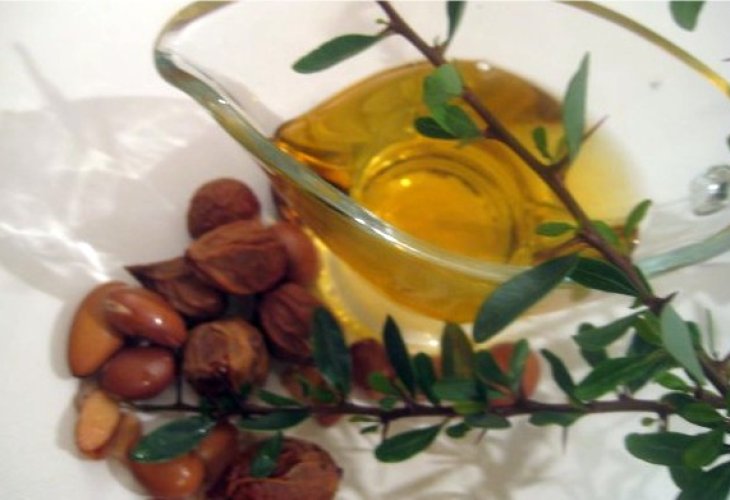She Applied Argan Oil to Her Abscessed Sores, and After a Week...
Reg'ima, a 30-year-old from Morocco, was shocked one day to find that her smooth facial skin was covered in countless inflamed and horrifying pimples, with no idea what caused them. So she decided to try argan oil. "I did exactly what the healer told me, and after a week of applying the oil to my face and body – I couldn't believe my eyes."

Reg'ima, a 30-year-old from Morocco, was shocked one day to find that her smooth facial skin, as well as different parts of her body, were covered in countless inflamed and horrifying pimples, with no clue about their cause. She consulted her family doctor, but upon realizing that even he had nothing new to offer, she sought help from a healer who practiced a traditional method. The healer promised a solution that was better than any conventional medicine for treating eczema, fungi, and other skin issues. "I did exactly what the healer told me, and after a week of applying argan oil to my face and body, I couldn't believe my eyes. The pimples vanished as if they were never there, and I felt that my skin 'breathed' anew."
Reg'ima then wanted to know more about the miraculous oil, and this is what she heard from her healer: "She told me that argan oil is one of the greatest miracles Hashem created in nature, and because it primarily grows in Morocco, the older women have come to know its properties and effectively use them for medicinal and cosmetic needs."
So, what is argan oil exactly? Here are 12 facts to fill in the gaps:
- Argan is a nut tree that mainly grows in southwestern Morocco, and its uses by locals are numerous, both in natural medicine and in the cosmetics industry. The oil itself is produced by local women, from the nuts growing on the tree, through a long and complex extraction process.
- Argan oil is rich in vitamin E, and essential acids that particularly help with skin renewal and firming, as well as 'root' healing of skin diseases.
- Since the oil became known in Western culture, it is considered one of the most sought-after and luxurious products in the world.
- Producing a liter of argan oil requires pressing about 50 kg of argan nuts (that is, a yield from between six to eight trees).
- Thanks to its medicinal properties, the argan tree is known as the 'Tree of Life' in Morocco.
- The National Institutes of Health in the USA has conducted numerous studies on the properties and benefits of argan oil and has also published various academic articles on the subject.
- The name 'Tree of Life' is attributed to the argan tree due to its healing properties, cosmetic benefits, and the unique taste of its nuts, which are sometimes even eaten in their natural form, after roasting.
- In Morocco, women use argan nuts as a rich spice for various dishes, and in the West, argan oil has been introduced as a 'luxury' addition to gourmet cooking. Many chefs like to drizzle a few drops onto salads or high-end dishes to give a different kind of aroma.
- Consuming argan oil as a dietary supplement impacts countless areas, from strengthening the immune system and reducing the risk of inflammation and various diseases to balancing blood pressure and lowering bad cholesterol.
- The elders of Morocco consider the tree as a fertility booster.
- Recent studies indicate a direct link between the consumption of argan oil and the reduction of heart and vascular diseases, diabetes, and cancer.
- Argan oil is known as a miracle cure for skin problems: eczema, burns, chickenpox, chafing, cuts, various skin and scalp wounds, scars, stretch marks during pregnancy, strengthening nails, hair loss, and more.

